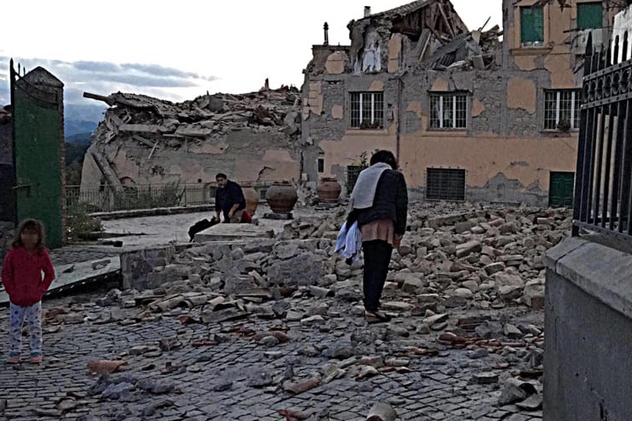A violent earthquake hit Central Italy on Wednesday 24th of August, trapping residents under ruins, killing 294 people and leaving thousands homeless.
The earthquake struck in the early morning (3:36 am) when most people were asleep, destroying homes and blocking roads in the area of Rieti which is located about 140 kilometers east of Rome.
The earthquake caused damage in three regions – Lazio, Marche and Umbria – and was felt as far afield as Naples.
“We are in contact with the Department of Civil Protection and other organizations on the ground to assess the situation and define first aid and medium-term interventions”, explains Lorena D’Ayala Valva, Cesvi’s emergency coordinator who is visiting the areas.
“We want our intervention to be useful and integrated to what other organizations are already doing or plan to do” – says Lorena – “Since the beginning of school in Italy is very close, we are likely to distribute school kits, school bags, notebooks and writing materials. Opening the schools on time will be an important step towards the return to normal life, especially for children”.
“I visited Arquata del Tronto, one of the most affected municipalities” – adds the coordinator of Cesvi – “where I found a dramatic situation. I met the deputy mayor and the representative of the Department of Civil Protection and they both confirmed the importance of providing children with school materials. We also talked about the possibility to create a prefabricated school for about 100 children aged 3-14 years”.
“We often worked in similar scenarios – for instance in Haiti and Nepal – focalizing on schools and other children’s needs, and we are ready to put our expertise at disposal of our Country as we already did when the region of Emilia was hit by two terrible earthquakes in 2012”.
“We intend to invest the money collected particularly in the post-emergency phase as it normally suffers from lack of financial backing in Italy. We will focus on children protection and psychological support to help them cope with the post-traumatic stress disorder (PTSD), and we will not forget the other vulnerable categories as well”, concludes Lorena.
You can give your help by donating online.
Foto Ansa
